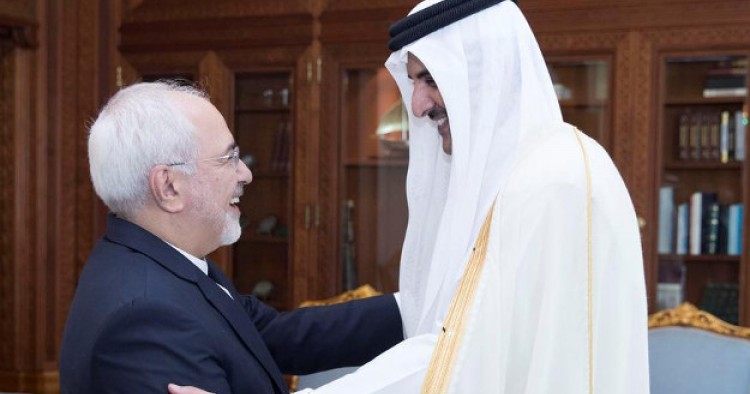Iranian Foreign Minister Javad Zarif held talks with Emir of Qatar Sheikh Tamim bin Hamad Al Thani as well as with his Qatari counterpart Mohammed bin Abdulrahman Al Thani in Doha earlier today. According to Iranian media, the two sides discussed ways to boost bilateral relations, particularly in the economic sphere. In his meeting with his Qatari counterpart, Zarif said Iran is ready to establish “long-term relations” with Qatar and turn the Gulf nation into one of Iran’s economic partners. The Qatari foreign minister also stressed that Doha aims to expand economic cooperation with the Islamic Republic parallel to political and diplomatic relations. Qatari minister of economy also participated in the meeting. In a separate meeting the Qatari emir reportedly praised Iran’s view about the need to seek peaceful resolutions to regional conflicts. The Qatari leader also emphasized that Iran’s role in solving regional crises is inevitable.
Comment: Relations between Iran and Qatar have improved markedly since a dispute broke out between Doha and a Saudi-led bloc of Arab countries in June. In August, the Qatari government returned its ambassador to Tehran to restore full diplomatic relations between the two countries. Doha had recalled its ambassador from Tehran in the wake of attacks against Saudi Arabia’s diplomatic missions in Iran. A statement by the Qatari Foreign Ministry said Doha also seeks to strengthen ties with Tehran in all fields.
After President Donald Trump’s visit to Riyadh in May, Iranian leaders were worried about the creation of a U.S.-supported alliance of regional Arab states led by Saudi Arabia to counter Iranian influence in the Middle East. The Qatari crisis, therefore, provided some relief to Tehran. But while Tehran has been trying to capitalize on the Qatar crisis for its geopolitical ends, it has been proceeding with caution. There are concerns in Tehran that Iran’s all-out support to Qatar may provoke a strong response from Washington and Riyadh.
The Middle East Institute (MEI) is an independent, non-partisan, non-for-profit, educational organization. It does not engage in advocacy and its scholars’ opinions are their own. MEI welcomes financial donations, but retains sole editorial control over its work and its publications reflect only the authors’ views. For a listing of MEI donors, please click here.













